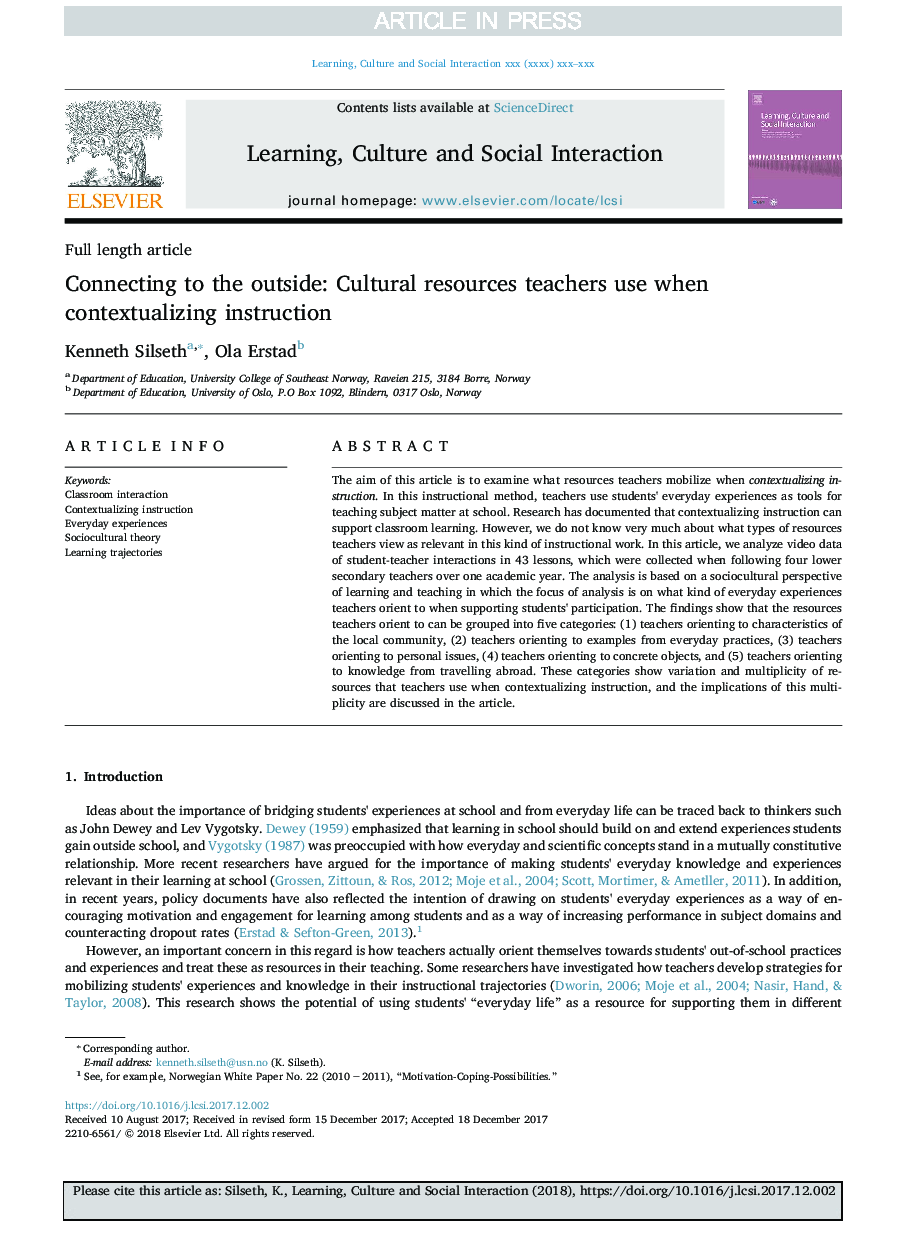| Article ID | Journal | Published Year | Pages | File Type |
|---|---|---|---|---|
| 6844150 | Learning, Culture and Social Interaction | 2018 | 13 Pages |
Abstract
The aim of this article is to examine what resources teachers mobilize when contextualizing instruction. In this instructional method, teachers use students' everyday experiences as tools for teaching subject matter at school. Research has documented that contextualizing instruction can support classroom learning. However, we do not know very much about what types of resources teachers view as relevant in this kind of instructional work. In this article, we analyze video data of student-teacher interactions in 43 lessons, which were collected when following four lower secondary teachers over one academic year. The analysis is based on a sociocultural perspective of learning and teaching in which the focus of analysis is on what kind of everyday experiences teachers orient to when supporting students' participation. The findings show that the resources teachers orient to can be grouped into five categories: (1) teachers orienting to characteristics of the local community, (2) teachers orienting to examples from everyday practices, (3) teachers orienting to personal issues, (4) teachers orienting to concrete objects, and (5) teachers orienting to knowledge from travelling abroad. These categories show variation and multiplicity of resources that teachers use when contextualizing instruction, and the implications of this multiplicity are discussed in the article.
Related Topics
Social Sciences and Humanities
Psychology
Developmental and Educational Psychology
Authors
Kenneth Silseth, Ola Erstad,
